- Administrator
- Albums and Singles
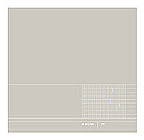 The most striking feature of z.e.l.l.e.'s debut CD is not its exceedingly low volume (barely audible music has become its own genre, so we should all have gotten past that shock by now), but its magnificent use of stereo seperation.
The most striking feature of z.e.l.l.e.'s debut CD is not its exceedingly low volume (barely audible music has become its own genre, so we should all have gotten past that shock by now), but its magnificent use of stereo seperation.
Digital pings are placed very carefully in space, while crackling static, not unlike the runout grooves of records, swirls underneath. As one listens deep into the music, sharp digital percussion dances in skitish cyclic patterns from all sides and lilting melodic fragments overlap and fall away into silence. Despite the air of sterile distance suggested by the grey and white package, a sense of playfullness pervades the music, as if the artists are truly enjoying their sound materials and aiming to continually surprise the active listener. This is the most overtly musical Line release so far, with recognizable song-like structures and dub-like delay effects making it more approachable and accessible than, say, Immedia. I imagine that nth would be even better as a four or five speaker installation in an art gallery, so that a listener could sit in the middle of an isolated room and hear the clicks swirl around?
 
 
samples:
 
Read More
- Administrator
- Albums and Singles
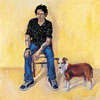 One thing nobody will ever accuse Dave Pajo of is recording the samealbum twice. Fans of the polished, sparkling instrumental melodic songswill be a little taken aback with his latest full-lengther. Unlike the'Shark Cage' or 'Aerial M' albums, this one is much less a continuousconcept, with variations in both musical and production stylesthroughout the course of the 18+ minutes. Pajo picks up where he leftoff from the recent 'Papa M Sings' EP, singing on many tracks in astyle not completely foreign to fans of his close friend and oftencollaborator, Will Oldham. A trucking anthem, "Over Jordan" opens thedisc, charming, yet shabbily produced songs like "Tamu" could haveeasily been recorded on a tape recorded in the kitchen. IntoxicatingMiddle Eastern and electronic elements come into play (via tablas andsitar) on the stellar "Sabotage." By the time this song is reached, I'mhonestly thinking Pajo's probably the most fearless man in indierock—unafraid to pick up new instruments and do whatever he wishes withthem. The disc ends with "Northwest Passage," which echoes last album's"Arundel." This variation, however is alternately colored with acousticguitar, harmonica, piano and drums. Guest musicians like Tara JaneO'Neil and Will Oldham add to the complex tapestry, but at the end ofthe day, this is clearly more Pajo than anybody else. To top it off,the deluxe 24-page CD booklet features various appealing originalphotos from the man himself with a thick stock and glossy finish. Thefirst few listens may be uneasy but give it time to settle in.
One thing nobody will ever accuse Dave Pajo of is recording the samealbum twice. Fans of the polished, sparkling instrumental melodic songswill be a little taken aback with his latest full-lengther. Unlike the'Shark Cage' or 'Aerial M' albums, this one is much less a continuousconcept, with variations in both musical and production stylesthroughout the course of the 18+ minutes. Pajo picks up where he leftoff from the recent 'Papa M Sings' EP, singing on many tracks in astyle not completely foreign to fans of his close friend and oftencollaborator, Will Oldham. A trucking anthem, "Over Jordan" opens thedisc, charming, yet shabbily produced songs like "Tamu" could haveeasily been recorded on a tape recorded in the kitchen. IntoxicatingMiddle Eastern and electronic elements come into play (via tablas andsitar) on the stellar "Sabotage." By the time this song is reached, I'mhonestly thinking Pajo's probably the most fearless man in indierock—unafraid to pick up new instruments and do whatever he wishes withthem. The disc ends with "Northwest Passage," which echoes last album's"Arundel." This variation, however is alternately colored with acousticguitar, harmonica, piano and drums. Guest musicians like Tara JaneO'Neil and Will Oldham add to the complex tapestry, but at the end ofthe day, this is clearly more Pajo than anybody else. To top it off,the deluxe 24-page CD booklet features various appealing originalphotos from the man himself with a thick stock and glossy finish. Thefirst few listens may be uneasy but give it time to settle in.
samples:
Read More
- Administrator
- Albums and Singles
![]() Bablicon are a Chicago-based trio of curiously monikerd multi-instrumentalists: 'Blue Hawaii', Marta Tennae and 'the diminisher'. This is their 3rd album, apparently conceived as a double album, tracks 1-6 under the "The Cat That Was a Dog" title and tracks 7-15 under "a Flat Inside the Fog". Most songs are rooted in piano composition, which all 3 members play, but vary widely in style and additional tone coloration: voices, various basses and saxes, electronics and all sorts of percussion and other odds and ends like theremin, melodica, 'friendly bird tinkles' and 'electric ghetto duck'.
Bablicon are a Chicago-based trio of curiously monikerd multi-instrumentalists: 'Blue Hawaii', Marta Tennae and 'the diminisher'. This is their 3rd album, apparently conceived as a double album, tracks 1-6 under the "The Cat That Was a Dog" title and tracks 7-15 under "a Flat Inside the Fog". Most songs are rooted in piano composition, which all 3 members play, but vary widely in style and additional tone coloration: voices, various basses and saxes, electronics and all sorts of percussion and other odds and ends like theremin, melodica, 'friendly bird tinkles' and 'electric ghetto duck'.
It's an avante-everything sort of music that takes in jazz, rock, symphonic and experimental, where playful melodies are as common as just plain weird melodies. The vocabulary that comes to mind when listening to these pieces - quirky, odd, surreal, beautiful, noisy, etc. - is much the same as that for the work of their Misra labelmates Volcano the Bear. Regarding some of the more compelling numbers: "Travelling" builds up a gypsy like dance of piano, upright bass and horns; "Mary" psychedelically grooves an organ, theremin and cymbal assault; "Arcdurvish" manipulates sax a la Terry Riley with electronics and percussive knickknacks; and the finale "An Odd Pear" eventually delivers the most outright attack of sound then settles down into a pretty (normal) jazz coda. "The Cat.." is definitely for the more adventurous listeners out there like you and me.
 
samples:
 
Read More
- Administrator
- Albums and Singles
 'The Lovers' first appeared on LP in 1984, side one was recorded at aconcert earlier that year while side two were all new tracks recordedlive for VPRO Radio in Holland. When the CD was first manufactured in1991, both tracks from the "Curious Guy" 12" single were included.While the disc is often not considered to be a truly bonafide LPDalbum, it contains some of my favorite LPD songs. The four songs fromside one had only ever appeared on compilation cassettes (if anywhereelse). The excitement about the band's current lineup can be observedsimply by the volume of material that surfaced in that year (whichincluded both 'The Tower' and 'Faces in the Fire') and here they wantedto treat the older tunes to a newer live arrangement. Side two startsand ends with the timeless emotional, violin and piano heavy classics"The Lovers" parts one and two. It also features the entertainingclassic, "Flowers for the Silverman" right in the middle. Thefeverishly catchy "Curious Guy" is cute and always a crowd-pleaser andthe disc ends appropriately with the complex 11½ minute opus"Premonition 16". Bonus bits for the new reissue include a restoredcover (which includes all five faces through the flowers), printedlyrics and a thumbnail for the 'Curious Guy' 12" release inside thetray.
'The Lovers' first appeared on LP in 1984, side one was recorded at aconcert earlier that year while side two were all new tracks recordedlive for VPRO Radio in Holland. When the CD was first manufactured in1991, both tracks from the "Curious Guy" 12" single were included.While the disc is often not considered to be a truly bonafide LPDalbum, it contains some of my favorite LPD songs. The four songs fromside one had only ever appeared on compilation cassettes (if anywhereelse). The excitement about the band's current lineup can be observedsimply by the volume of material that surfaced in that year (whichincluded both 'The Tower' and 'Faces in the Fire') and here they wantedto treat the older tunes to a newer live arrangement. Side two startsand ends with the timeless emotional, violin and piano heavy classics"The Lovers" parts one and two. It also features the entertainingclassic, "Flowers for the Silverman" right in the middle. Thefeverishly catchy "Curious Guy" is cute and always a crowd-pleaser andthe disc ends appropriately with the complex 11½ minute opus"Premonition 16". Bonus bits for the new reissue include a restoredcover (which includes all five faces through the flowers), printedlyrics and a thumbnail for the 'Curious Guy' 12" release inside thetray.samples:
 'Island of Jewels' on the other hand is one of my least favorite LPDalbums. Recorded and released in 1986, it was the first full-lengthalbum recorded with Edward living in Holland and the rest of the groupliving in England. Incidentally, the album seems fragmented andunconnected, while the production seems rather sterile and thin. Theband sounds like a group of musicians not paying attention to eachother, all clamoring for attention without letting each other'sinstruments have a life of their own. It's somewhat painful to listento as the songwriting really isn't bad at all. Songs like "The Shock ofContact" and "Jewel in the Crown" would probably have benefitted from acompletely different recording approach. This reissue is probably oneof my favorite improvements on the other hand. The back cover has beenadopted from black and white images from inside the original gatefoldLP issue, photos have been included as well as lyrics—none of whichwere on the original PIAS CD release.
'Island of Jewels' on the other hand is one of my least favorite LPDalbums. Recorded and released in 1986, it was the first full-lengthalbum recorded with Edward living in Holland and the rest of the groupliving in England. Incidentally, the album seems fragmented andunconnected, while the production seems rather sterile and thin. Theband sounds like a group of musicians not paying attention to eachother, all clamoring for attention without letting each other'sinstruments have a life of their own. It's somewhat painful to listento as the songwriting really isn't bad at all. Songs like "The Shock ofContact" and "Jewel in the Crown" would probably have benefitted from acompletely different recording approach. This reissue is probably oneof my favorite improvements on the other hand. The back cover has beenadopted from black and white images from inside the original gatefoldLP issue, photos have been included as well as lyrics—none of whichwere on the original PIAS CD release.
samples:
Read More
- Administrator
- Albums and Singles
 This disc is the latest in Atavistic's "Unheard Music Series" of CDreissues of rare and otherwise unavailable improvised music LPs. Itpurports to be a reissue of two LPs from 1980 and 1981, originallypublished on the Y Records label, which was better known for itsrecords by punk/dub groups like the Slits and the Pop Group. Inreality, the disc contains not even a full side of the "DoubleIndemnity" LP (a total of twelve minutes, to be precise), all the musicfrom the "Imitation of Life" LP, and twenty minutes of previouslyunreleased piano and cello duos by Beresford and Honsinger,respectively.
This disc is the latest in Atavistic's "Unheard Music Series" of CDreissues of rare and otherwise unavailable improvised music LPs. Itpurports to be a reissue of two LPs from 1980 and 1981, originallypublished on the Y Records label, which was better known for itsrecords by punk/dub groups like the Slits and the Pop Group. Inreality, the disc contains not even a full side of the "DoubleIndemnity" LP (a total of twelve minutes, to be precise), all the musicfrom the "Imitation of Life" LP, and twenty minutes of previouslyunreleased piano and cello duos by Beresford and Honsinger,respectively.The best stuff on here is the first two duo tracks, quite tasteful iftypical for free improvisation, but I can't say any of it is goodenough to recommend purchasing the disc. The duo's tendency towardssilly clowning overshadows otherwise inventive improvisation and marsmost of the tracks, leaving lots of great moments but no great completepieces. The short tracks taken from "Double Indemnity" are acacaphonous flurry of notes, crashing fists of piano, and dramaticshifts in mood and texture. However, Honsinger's ridiculious speechesabout salad dressing and declarations like "Do you think it's allright?" and "What does it mean, anyway?" seem to be apologetic at timeswhen the music finds an uncomfortable space which would have beenstronger if left alone. Why he makes animal sounds, or referencesmusical styles like film music and military marches, or lapses intojokey yelping right when an improvisation is getting good is beyond me.
Nowhere is this more distracting than on the tracks taken from thequartet LP, which I was excited to hear because of the inclusion ofKondo from before he added that wretched delay-pedal effect to histrumpet. Aside from the sections in which someone (hard to tell who isto blame for this) beats out a galloping 4/4 beat (why??) or when themusicians do the obvious and lazy gimmick of trading a melodic lineback and forth (surely the players are better than that), there areintense sections here that work for minutes at a time. Then someonemakes opaque quacking noises through his fluegelhorn, or plays"Revelie" or scales, or recites film dialogue, and the music becomes sogrounded that it cannot get back up.
samples:
Read More
- Administrator
- Albums and Singles
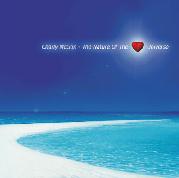 Charly McLion's musical career has extended over three decades and manygenres including rock and blues bands, Algerian Rai, commercial workand most recently, electronic. "The Nature of the Universe" is his solodebut and the 2nd release from Aachen, Germany based KingfisherRecords. McLion, born B?hel, composed these eleven 5 to 7 minuteinstrumental tracks with samples, guitars and keyboards. His music isof a Hearts of Space, electronic new age flavor that at times recalls"A Momentary Lapse of Reason"-era Pink Floyd and the solo work offellow German Michael Rother (ex-Kraftwerk, Neu!). Pretty piano andkeyboard melodies, mellow guitar soloing and accompaniment, lightprogrammed bass and beats and dramatic, sweeping waves of synthresonance are the primary modes of relaxation. Everything isintentionally easy on the ears and unobtrusive, just simply happy toslowly soothe. "Eye In The Sky" introduces a bit of EBM funkiness tothe rhythm while "Sunshine" drops a female vocal sample and bit ofSpanish styled acoustic guitar. Nice. With the sometimes staggeringamount of experimental music I listen to, it's good to put on somethingas straightforward yet enjoyable as this every now and then.
Charly McLion's musical career has extended over three decades and manygenres including rock and blues bands, Algerian Rai, commercial workand most recently, electronic. "The Nature of the Universe" is his solodebut and the 2nd release from Aachen, Germany based KingfisherRecords. McLion, born B?hel, composed these eleven 5 to 7 minuteinstrumental tracks with samples, guitars and keyboards. His music isof a Hearts of Space, electronic new age flavor that at times recalls"A Momentary Lapse of Reason"-era Pink Floyd and the solo work offellow German Michael Rother (ex-Kraftwerk, Neu!). Pretty piano andkeyboard melodies, mellow guitar soloing and accompaniment, lightprogrammed bass and beats and dramatic, sweeping waves of synthresonance are the primary modes of relaxation. Everything isintentionally easy on the ears and unobtrusive, just simply happy toslowly soothe. "Eye In The Sky" introduces a bit of EBM funkiness tothe rhythm while "Sunshine" drops a female vocal sample and bit ofSpanish styled acoustic guitar. Nice. With the sometimes staggeringamount of experimental music I listen to, it's good to put on somethingas straightforward yet enjoyable as this every now and then.
samples:
Read More
- Administrator
- Albums and Singles
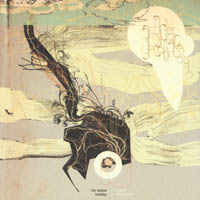 The title of the seventh cut, "Hassle Free Harmony", serves as anexcellent summation of the album in its entirety. Marc Bianchi returnsunder his HSH moniker with 'Manic Expressive', a release that iselegant, yet mellow and uncomplicated. From the three-minute stringarrangement of the opening track to the sweet and wispy vocals on "TheRinging in My Ears", the album blends an extensive assortment ofmusical sources, both organic and electronic. Melodically, the songsare aural decoupage: it's as if Bianchi gives the listener a sonicslide show, displaying bits and pieces of his favorite tunes by otherartists ("Dear Prudence" immediately springs to mind). The result,however, does not give the impression that these outside sources havebeen plundered, but rather form a charming homage. The juxtaposition ofan orchestral ebb and flow with subtle mechanical beats, hypnoticambient atmospherics and glistening guitar is handled with dexterity.Even when the otherwise humble songs surge with drama, Bianchi neverallows them to run amok. The orchestra pit warm-up that opens the firsttrack signals what is to come: the artistic and stylistic developmentof HSH since the previous effort, 'Home Is Where You Hang Yourself'.Break out the electric blankets; 'Manic Expressive' is perfectlistening for curling up in a warm bed on a snowy morning.
The title of the seventh cut, "Hassle Free Harmony", serves as anexcellent summation of the album in its entirety. Marc Bianchi returnsunder his HSH moniker with 'Manic Expressive', a release that iselegant, yet mellow and uncomplicated. From the three-minute stringarrangement of the opening track to the sweet and wispy vocals on "TheRinging in My Ears", the album blends an extensive assortment ofmusical sources, both organic and electronic. Melodically, the songsare aural decoupage: it's as if Bianchi gives the listener a sonicslide show, displaying bits and pieces of his favorite tunes by otherartists ("Dear Prudence" immediately springs to mind). The result,however, does not give the impression that these outside sources havebeen plundered, but rather form a charming homage. The juxtaposition ofan orchestral ebb and flow with subtle mechanical beats, hypnoticambient atmospherics and glistening guitar is handled with dexterity.Even when the otherwise humble songs surge with drama, Bianchi neverallows them to run amok. The orchestra pit warm-up that opens the firsttrack signals what is to come: the artistic and stylistic developmentof HSH since the previous effort, 'Home Is Where You Hang Yourself'.Break out the electric blankets; 'Manic Expressive' is perfectlistening for curling up in a warm bed on a snowy morning.
samples:
Read More
- Administrator
- Albums and Singles
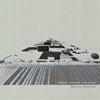 Stichting Mixer is a 2-year-old foundation for minimal electronic/acoustic music, it's goal "to start and stimulate initiatives which encourage the encounter between sound and other media". Its recorded output, from knowns and unknowns alike, is released through the Mixer label. This disc is the first release on CD, limited to 500 copies.Battery Operated, apparently the duo of TomKz and Wade Walker, "chase" (i.e. DAT record) sound signals in 8 architectural non places, those modern structures of repetition such as airports, rail stations, hotels and shopping centers. Thus, they use the spaces themselves to construct soundtracks for them. The 8 tracks are roughly 5 to 6 minutes apiece and the digipack offers only the abstruse clue of a greyscale texture for each location. All sorts of unidentifiable sound tidbits are churned up and around, molded into quasi-rhythmic patterns and ambient-ish soundscapes. Tracks 3 and 8 are the real standouts though, simply because they're the most musically dynamic. The former in particular perfectly segues between cluttered and calm moments. Good stuff. Future Mixer releases I'll be keeping an ear out for include a split LP by Pimmon and K?n and a double 7" by Kaffe Matthews.
Stichting Mixer is a 2-year-old foundation for minimal electronic/acoustic music, it's goal "to start and stimulate initiatives which encourage the encounter between sound and other media". Its recorded output, from knowns and unknowns alike, is released through the Mixer label. This disc is the first release on CD, limited to 500 copies.Battery Operated, apparently the duo of TomKz and Wade Walker, "chase" (i.e. DAT record) sound signals in 8 architectural non places, those modern structures of repetition such as airports, rail stations, hotels and shopping centers. Thus, they use the spaces themselves to construct soundtracks for them. The 8 tracks are roughly 5 to 6 minutes apiece and the digipack offers only the abstruse clue of a greyscale texture for each location. All sorts of unidentifiable sound tidbits are churned up and around, molded into quasi-rhythmic patterns and ambient-ish soundscapes. Tracks 3 and 8 are the real standouts though, simply because they're the most musically dynamic. The former in particular perfectly segues between cluttered and calm moments. Good stuff. Future Mixer releases I'll be keeping an ear out for include a split LP by Pimmon and K?n and a double 7" by Kaffe Matthews.
 
samples:
 
Read More
- Administrator
- Albums and Singles
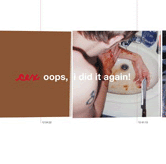 This full-length CD shares only a tiny amount from the 12" released earlier this year which bears the same name. (For my praise of those four songs from the first side, see issue 31 from this year.)This version opens with something so far beyond politically incorrectness but then breaks into a charming acoustic guitar bit. Of course it moves quickly on to of Cex's more well-developed electronic cut-up fuckery, with the occasional scatterings of kitchy sketch comedy (which Tigerbeat6 artists seemingly are becoming more known for), and only a subliminal hint of rap. Not what I was expecting from a guy whose live shows have had some fierce freestyle rapping lately. It's strange, that at first I was kinda set off by his rapping and comedy, but now I'm kinda wishing there was more of it on this disc. This is a truly fulfilling disc, however. Mr. Kidwell has got a keen mastery of mixing the elements just right for each song—low grooves, fun breaks, enough glitchery to make it interesting and not too much to make it laborious. A brilliant bit ends the disc on the theme of a high school crush shining through a mix tape. It may lead some to wonder "Is it real? Is it staged?" The pretentious European electronic music critics might not get all the jokes but Cex is surely more entertaining than nearly all of the critically acclaimed noodly drivel littering the shops.
This full-length CD shares only a tiny amount from the 12" released earlier this year which bears the same name. (For my praise of those four songs from the first side, see issue 31 from this year.)This version opens with something so far beyond politically incorrectness but then breaks into a charming acoustic guitar bit. Of course it moves quickly on to of Cex's more well-developed electronic cut-up fuckery, with the occasional scatterings of kitchy sketch comedy (which Tigerbeat6 artists seemingly are becoming more known for), and only a subliminal hint of rap. Not what I was expecting from a guy whose live shows have had some fierce freestyle rapping lately. It's strange, that at first I was kinda set off by his rapping and comedy, but now I'm kinda wishing there was more of it on this disc. This is a truly fulfilling disc, however. Mr. Kidwell has got a keen mastery of mixing the elements just right for each song—low grooves, fun breaks, enough glitchery to make it interesting and not too much to make it laborious. A brilliant bit ends the disc on the theme of a high school crush shining through a mix tape. It may lead some to wonder "Is it real? Is it staged?" The pretentious European electronic music critics might not get all the jokes but Cex is surely more entertaining than nearly all of the critically acclaimed noodly drivel littering the shops.
 
samples:
- Destination: Sexy
- Eleven Million Dollars Worth of Bearer Bonds
- Florida [is shaped like a big droopy dick for some reason]
 
Read More
- Administrator
- Albums and Singles
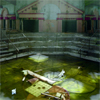 With only a single and a few collaborations out this year, Chicago's Locrian have been rather quiet, with this being their first (and so far only) full-length release of the year. The Clearing both recalls their earliest, noise-addled drone work while still looking forward to their current unique take on metal/prog/kraut rock.
With only a single and a few collaborations out this year, Chicago's Locrian have been rather quiet, with this being their first (and so far only) full-length release of the year. The Clearing both recalls their earliest, noise-addled drone work while still looking forward to their current unique take on metal/prog/kraut rock.
At only four songs, the album is a bit more of a terse statement than the likes of Territories and The Crystal World, both of which more closely mirrored a "traditional" album structure.With three mid-length pieces and a side-long closer, each piece stretches out and is given time and room to develop.
The opening "Chalk Point" is the most consistent with their more recent song-oriented approach.Initially beginning with a lo-fi soundscape and oddly treated percussion from Steven Hess, the dark piano and slow rhythmic lurch eventually explodes into squealing metal guitar from Andre Foisy and full on drums.With the arrival of distant, detached vocals from Terence Hannum, the piece develops into the sweeping drama of prog rock, but with the experimentation of the best kraut artists.
"Augury in an Evaporating Tower" more closely matches Locrian’s earlier days, with its opening noise buzzes and layers of droning synth that eventually meld together into some sort of melodic construct.The distant guttural vocals and treated percussion exemplify this, going more back to their noise roots.This carries over a bit into "Coprolite," which is built upon a foundation of heavily processed, reversed guitar tones and electronic textures.With the use of percussion and acoustic guitar, the dissonant elements are well balanced by traditional ones.
The closing title track covers the entirety of the second half of the record.Initially a slow build from repetitive bass synth throbs and static outbursts, pained vocals and percussion arrives to give it more of that song-oriented sound that "Chalk Point" had before.However, just as quickly the structure falls away, leaving a ritualistic throb that echoes a living, breathing organism.With each passing moment it becomes bleaker and darker before collapsing upon itself, slowly dying.
Like the recent "Dort Ist Der Weg" single, The Clearing shows how well Locrian has become at balancing their musical impulses with their raw, chaotic noise background.The two come together perfectly throughout this album, which does a great job at defying genre conventions and any preconceptions.This is a wonderful balance of dissonance and melody, light and dark, melody and noise.
samples:
 
Read More
- Administrator
- Albums and Singles
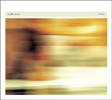 Recorded inside a 100-year-old Washington state church, this duo of Japanese residents Corey Fuller and Tomoyoshi Date, utilizes the natural reverberations and ambience of the space in which it was recorded to craft a melancholy, emotional work that uses electronic and acoustic instruments together seamlessly.
Recorded inside a 100-year-old Washington state church, this duo of Japanese residents Corey Fuller and Tomoyoshi Date, utilizes the natural reverberations and ambience of the space in which it was recorded to craft a melancholy, emotional work that uses electronic and acoustic instruments together seamlessly.
Recorded after a tumultuous year in both artists' lives, exacerbated by the Tokyo earthquake and subsequent nuclear concerns, Shizuku clearly is a work tinted with a sense of sadness and depression, though in a powerful, creative way.It is instead an essential piece that fleshes out this album perfectly.
"Rokuu" opens with surges of water and soft synthesizer tones, with the addition of field recording elements that, when combined, create a familiar, yet unidentifiable world of sound.While the first half of the piece is characterized by abstract passages, the latter is more familiar, bringing in acoustic and electric guitar, along with cello, creating a more conventional outro.
The cello reappears within "Aikou," and with the clear piano notes mixed with clinking improvised sounds and electronic textures to become something else entirely.Never clearly musical nor abstract, it is instead a unique hybrid of the two.The use of piano becomes a recurring theme, leading the slow, mournful "Saika" and the more textural "Kie."
Additionally, oddly clipped guitar notes appear with drawn out tones on "Guuzai," with distant, echoed percussive noises and unidentifiable field recordings.While the sustained tones are the focus, the distant percussive sounds and ambient sounds balance things out nicely.
The one misstep, which I don’t even think qualifies as one, is the use of spoken word on "Seiya" by the poet Tadahito Ichinoseki.While it is entirely in Japanese (a language I do not speak nor understand), his careful, deliberate method of speaking conveys an emotion that is beyond language.However, the use of voice is such a drastic change compared to the subtle melodies and mysterious sounds that surround it, causing it to stand out noticeably.It's just very unexpected within the context of the album, but not something I'd consider to be a mistake at all.
The blend of electronic and organic sounds on Shizuku is a compelling one, and the use of natural reverb and spaces makes it all the more powerful.While it has a bleak, sad overcast to it, it adds to the mood and emotion conveyed. Pensive, yet compelling, it is a wonderful combination.
samples:
 
Read More
